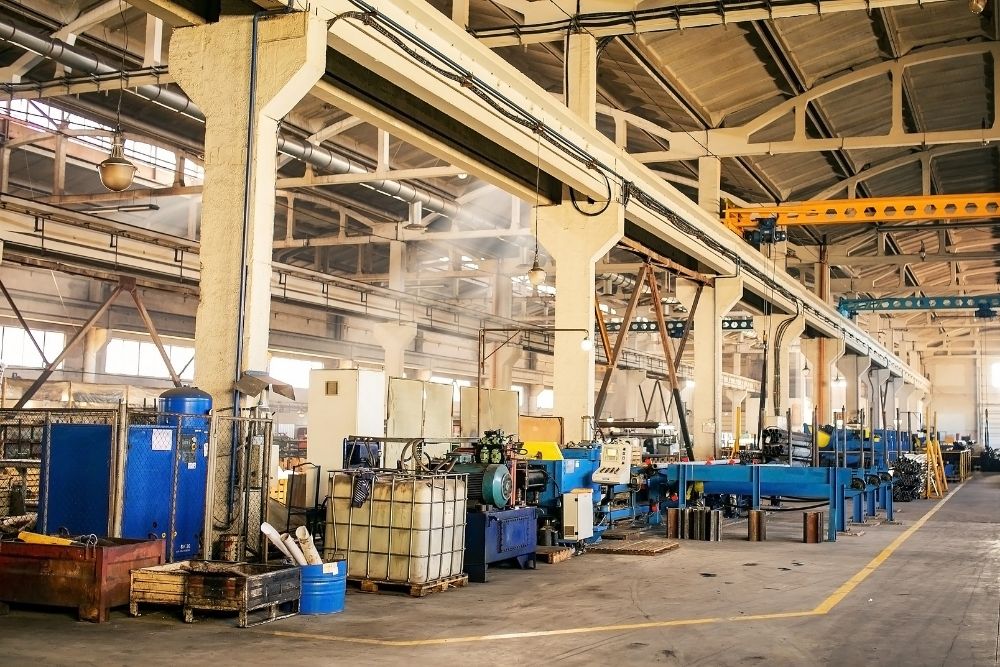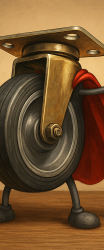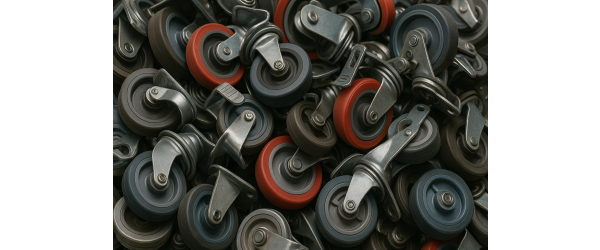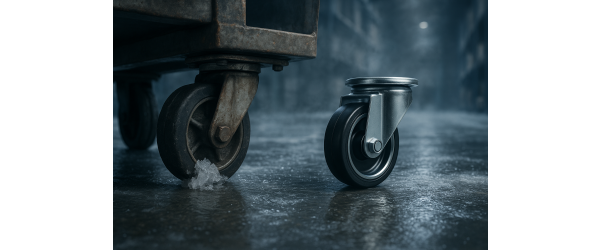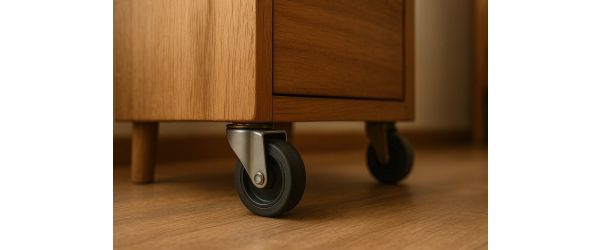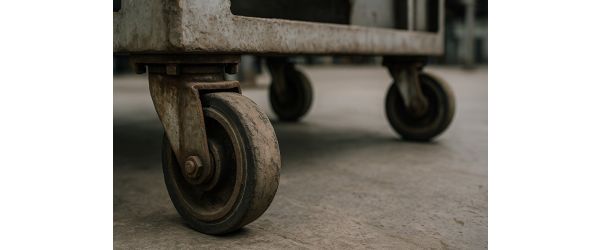Industrial environments often demand the toughest, most reliable equipment to keep operations running smoothly. Among these essentials, industrial castors play a critical role by facilitating the movement of heavy loads in warehouses, factories, and other demanding settings. Choosing the right industrial castors ensures optimal performance, safety, and efficiency. In this blog, we’ll explore the key features of industrial castors designed for heavy-duty applications and how they make a difference in day-to-day operations.
1. High Load Capacity
One of the primary features of industrial castors is their ability to support heavy loads. Unlike standard castors, industrial versions are built with robust materials and reinforced designs to handle substantial weight without compromising stability or mobility.
- Importance:
Ensuring that your castors can support the weight of your equipment, machinery, or goods is vital for maintaining safety and preventing equipment failure.
Tip:
Calculate the total weight you need to move and choose castors with a load capacity that exceeds this figure for added safety.
2. Durable Construction Materials
Industrial castors are often made from tough materials such as steel, cast iron, and high-grade polyurethane. The choice of material affects the castor’s performance, wear resistance, and compatibility with different environments.
- Steel and Cast Iron: Ideal for extreme weight-bearing applications, offering maximum durability and resistance to wear and tear.
- Polyurethane:
Suitable for handling heavy loads while protecting floors from damage. Polyurethane castors also offer noise reduction, making them a great choice for indoor use.
Choosing the right material for your industrial castors helps ensure long-lasting performance, even in demanding conditions.
3. Heat and Chemical Resistance
In many industrial settings, castors may be exposed to harsh environments involving heat, chemicals, or moisture. Industrial castors designed for these conditions often feature coatings or specialised materials to resist damage.
- Heat-Resistant Castors: Ideal for applications involving exposure to high temperatures, such as in ovens, furnaces, or other heat-intensive areas.
- Chemical-Resistant Castors: Crucial for environments where exposure to chemicals, oils, or solvents is common. These castors maintain their structural integrity and performance, even when subjected to corrosive substances.
Tip:
Consider the specific environmental conditions in your workplace when choosing industrial castors to ensure durability and safety.
4. Shock Absorption Capabilities
Industrial environments can present uneven surfaces, vibrations, and shock forces that impact the stability of equipment. Shock-absorbing castors help protect both the load and the floor, providing smoother movement and reducing the risk of damage.
- Spring-Loaded Castors: These are designed to absorb shock and vibration, making them ideal for transporting sensitive equipment or moving loads across rough terrain.
- Rubber Wheels:
Soft rubber castors can also help reduce shock, although they may have a lower load capacity compared to metal options.
Applications:
Shock-absorbing industrial castors are commonly used in material handling, automotive production, and other sectors where load stability is critical.
5. Swivel and Locking Mechanisms for Precision Movement
In many heavy-duty applications, precise movement and the ability to lock castors in place are crucial for safety and control. Industrial castors often come with swivel and locking mechanisms to enhance flexibility and stability.
- Swivel Castors:
These allow 360-degree rotation, enabling smooth movement and easy direction changes. They’re ideal for manoeuvring heavy loads in tight spaces. - Locking Mechanisms: Castors with brakes or total locks can be secured to prevent movement when stationary, providing stability for tasks that require a steady base.
Selecting the right combination of swivel and locking castors ensures efficient, precise movement and secure positioning when needed.
6. Wheel Tread and Surface Compatibility
The type of tread on an industrial castor affects its grip, mobility, and impact on the floor surface. Different treads are suited to different environments.
- Smooth Treads:
Ideal for hard, flat surfaces, offering low rolling resistance and excellent manoeuvrability. - Textured or Grooved Treads: Provide better traction on rough or uneven surfaces, making them suitable for outdoor use or areas with debris.
Consider the type of flooring and environmental conditions when selecting castor treads to ensure optimal performance and minimal wear on surfaces.
7. Maintenance and Easy Replacement
Regular maintenance of industrial castors is essential to ensure their longevity and reliability. Look for castors that are easy to replace or maintain, as this can save time and reduce downtime.
- Grease Fittings:
Some industrial castors come with grease fittings for easy lubrication, keeping the bearings in good working condition. - Modular Components: Castors with replaceable parts, such as wheels or bearings, allow for quick fixes and extended lifespan without the need for complete replacement.
Conclusion:
Industrial castors are vital for heavy-duty applications, providing the strength, durability, and manoeuvrability needed to keep operations running smoothly. By choosing the right features — such as load capacity, material durability, shock absorption, and more — you can ensure optimal performance and longevity. For high-quality industrial castors tailored to various applications, Castors Online has a wide range of options to meet your needs.
